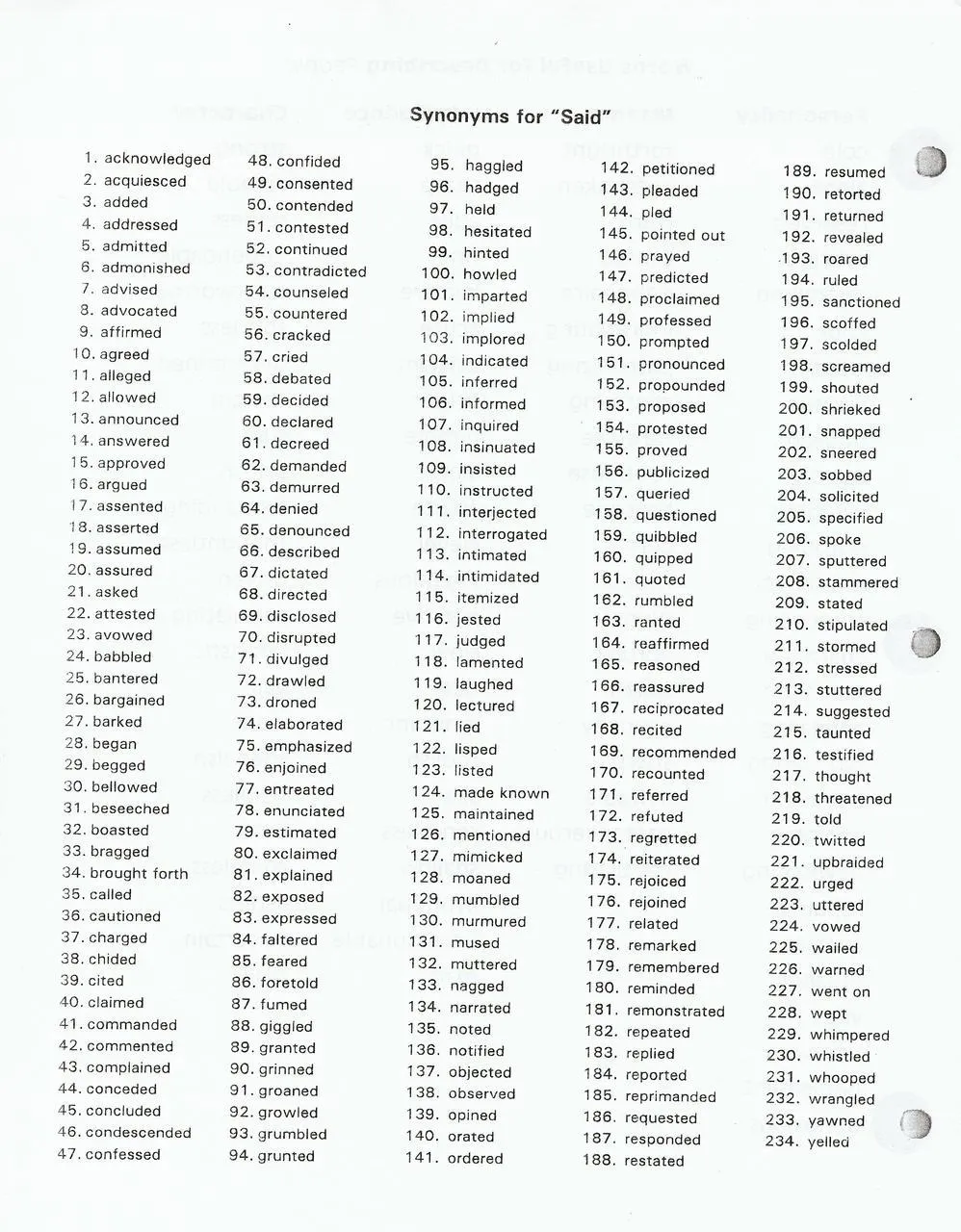Пост 375786558

our professor insist we use none of these in newswriting, only “said.”
Страница 2 из 5

our professor insist we use none of these in newswriting, only “said.”
Последние месяца полтора меня занимает вопрос о том, почему в моём внутреннем лексиконе закрепилось слово «тёлочка» в значении «привлекательное человеческое существо женского пола».
То есть, я знаю, где я его подрезал (где-то у Шейна Трейси, когда он рассказывал про Легендарного арт-директора). Но это случилось несколько лет назад.
А почему сейчас «тёлочка» всплыла и закрепилась уверенным обозначением — вот это меня действительно занимает.
*
РЕД: о, а вот, что отвечает на вопрос о стаже использования «клёвой тёлочки» сам Шейн Трейси. Больше, больше года! Впрочем, Шейн Трейси-то и сам прекрасен, ему ли не знать.
*
У вас есть вопрос, который вы всю жизнь мечтали мне задать? Отлично! Спрашивать сюда, %username%
Это не реакция на трагическое, это сопереживание и присоединение к эмоциям собеседника. Почему так? Наверное, потому что в русской культуре хорошее не требует сочувствия — им люди и так поделятся, если захотят компании, его не нужно скрывать.
С горем и страданием не так, их неприлично выставлять наружу, и даже траур — это больше знак скромности и воздержания, свойство момента, сообщение «не подходи ко мне», чем запрос на соучастие и внимание. В горе человек уязвим и более замкнут, в это время ему важнее внешний собеседник, поддержка людей вокруг. Тяжёлые эмоциональные состояния сильнее прочих возвращают человека из индивидуального сознания в коллективное. В этот момент невербальное сообщение человека снаружи может быть легко не замечено и проигнорировано (потому что в русской коммуникативной культуре, опять же, не принято выражать нюансы эмоций — или морда кирпичом, или гогот, «спартак — чемпион!», подвиги, взрывы энергии и «а ты чей? а, без разницы, иди, отметь с нами, мы сейчас все братья»).
Наверное, поэтому и у слова «сочувствие» в качество главной, если не единственной, осталась функция печали, а не присоединения к другому в любом состоянии, в каком бы тот ни находился. И, по-моему, не только в русском — я вот вспоминаю про compassion, которое близко по устройству к сочувствию/сопереживанию.
И, для контраста, sympathy, один из главных ложных друзей переводчика, слово, имеющее в русском однозначно положительное значение «симпатия», а в английском ближе к нейтральному «сочувствию», соучастию, взаимопониманию.
*
У вас есть вопрос, который вы всю жизнь мечтали мне задать? Отлично! Спрашивать сюда, %username%
Фраза дня: “I call shenanigans”
The action of declaring “shenanigans.” Once a person calls shenanigans, he or she has temporary complete control over the surrounding events, objects, actions, and laws of physics.
Preemptive shenanigans
Person A: “I call shenanigans!”
Person B: “Aw man!”Rebuttle shenanigans
Person B: “I win our bet, pay up.”
Person A: “I call shenanigans!”
Person B: “Dang.”
Urban Dictionary: I call shenanigans
Моё любимое про шушеру там тоже есть!
The site is incredibly simple: you enter any English phrase you can think of, and it uses Google’s automated translator to convert it into Japanese. And then it translates it back into English. And back into Japanese. At each step along the way, the words you began with gradually take shape to form something entirely different and (hopefully) awesome. The retranslations continue until you reach what the site calls ‘equilibrium’, when the English and Japanese words translate back and forth into exactly the same thing. Fortunately, it usually takes at least a few steps for your words to reach equilibrium, and the resulting sentences are often hilarious.
Слово дня: funemployment
A happy time in one’s life when one is not employed and is not wanting to be employed
Urban Dictionary: funemployment
Слово дня: “Op-Ed”
An op-ed, abbreviated from opposite the editorial page (though often believed to be abbreviated from opinion-editorial), is a newspaper article that expresses the opinions of a named writer who is usually unaffiliated with the newspaper’s editorial board. These are different from editorials, which are usually unsigned and written by editorial board members. Op-eds are so named because they are generally printed on the page opposite the editorial.
Although standard editorial pages have been printed by newspapers for many centuries, the first modern op-ed page was created in 1921 by Herbert Bayard Swope of The New York Evening World. When he took over as editor in 1920, he realized that the page opposite the editorials was “a catchall for book reviews, society boilerplate, and obituaries.” He is quoted as writing:
“It occurred to me that nothing is more interesting than opinion when opinion is interesting, so I devised a method of cleaning off the page opposite the editorial, which became the most important in America… and thereon I decided to print opinions, ignoring facts.”
Op-ed — Wikipedia, the free encyclopedia
Military term for an operation in which multiple things have gone wrong. Related to “SNAFU” (Situation Normal, All Fucked Up") and “FUBAR” (Fucked Up Beyond All Repair).
In radio communication or polite conversation (i.e. with a very senior officer with whom you have no prior experience) the term “clusterfuck” will often be replaced by the NATO phonetic acronym “Charlie Foxtrot.”
Trendly is a product of Smallthought Systems, makers of Dabble DB. It used to be called Dshbrd, but nobody knew how to pronounce that.